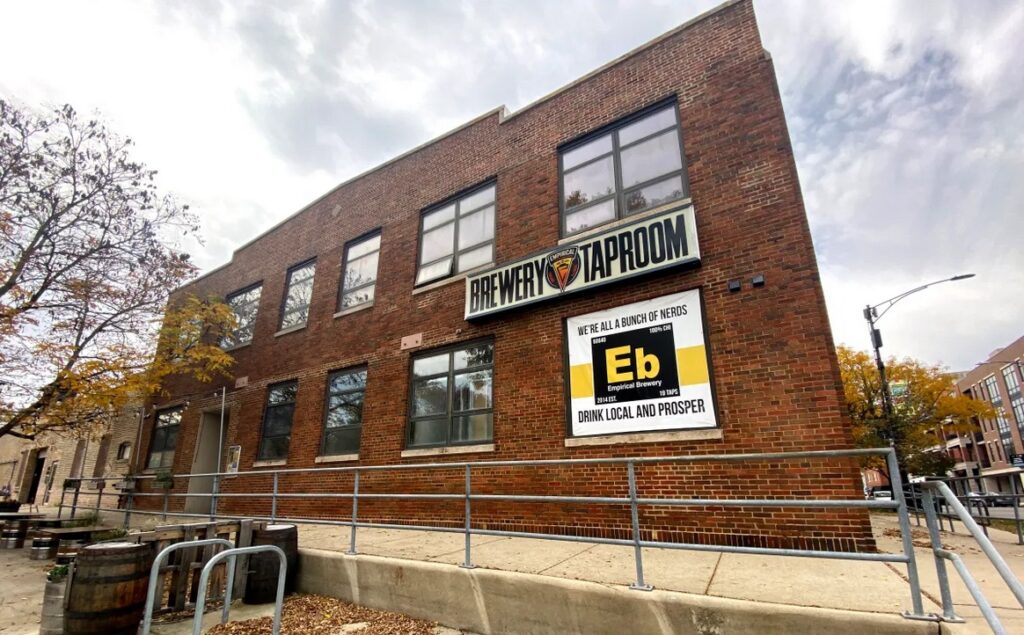
In my last post, I talked about how I found my way to setting up a community biolab in Chicago . But the story of ChiTownBio about me, it’s about assembling the right team. It’s about finding people who are excited to build something, and rolling up our sleeves.
ChiTownBio really got its start when Oliver Harrison, who was at the time an undergraduate student at Northwestern, starting to learn a bit about community biolabs around the country. At the time, Oliver was part of a synthetic biology club at Northwestern, and the club had talks given by both its graduate and undergraduate members. Oliver gave a short talk about community biology, and a number of wonderful coincidences occured
For one, one of the people in the audience was a post-doctoral worker at Northwestern, our current Secretary and the future founder of StemLoop, Khalid Alam. It bums me out how much I have relied on someone from Missouri, but Khalid is an amazing partner in getting things done and one of the most critical and unique thinkers. The audience also included Isaac Larkin and Peter Su, two graduate students in synthetic biology labs at Northwestern.
Preparing for the talk also resulted in Oliver talking to Joshua Leonard, my former adviser when I was a graduate Student. Josh had been aware of my attempt to create a community biology lab, and he encouraged Oliver to reach out to me. Oliver and I both were incredibly enthusiastic about community biology, and after his talk and our conversations, we decided to give creating a lab a go.

We started asking members of the Synthetic Biology club who would help set up a lab, and quickly, Isaac, Khalid, Oliver, Peter, and I were all working to start create a space. Our first move was to create various outreach events. We looked for spaces around Chicago to host such events, and one place seemed like a great fit. In Ravenswood, a brewery called Empirical Brewing seemed to focus on beers with a scientific inspiration. Their beers were named after things like gamma rays, down quarks, and lumen. It felt like an amazing fit for our early events, and we invited all our friends for some early demos and discussions.
Our early demos were well attended, but it was mainly our friends and family. So we started to try to expand our events. We ran demos, but we also hosted a book club at various libraries and tried some outdoor events, including a walk at a local nature park. We set up a Slack (it’s still active! Feel free to write chitownbio@gmail dot com and we’ll add you to our Slack!) and we cultivated our community.
But we didn’t actually have space. And we really struggled to find one. We looked at many storefronts and industrial spaces, but we couldn’t afford any. We nearly partnered with a large developer, but they could not wrap their heads around our actual goal.
Our early years saw a lot of change. Peter moved to Chicago, and Isaac and Oliver had less and less time to help organize and other challenges and opportunities. Then the pandemic hit. And a huge amount of the progress and movement we had made seemed to collapse.
As an organization that has was certified as a 501c3 in 2017, we often get asked why we haven’t made more progress at creating a space. But starting things is hard, and we also were very cautious about our expansion. We wanted to make sure we didn’t follow the path of so many places that had come before. Looking at resources like DIYBio, we could see how many labs started and then faded like a flash in the pan. We wanted to make sure we built something that last.
I’ll go through our next 4 years after the start of the pandemic next week, but I wanted to make sure I explained how we have moved slowly and methodically in our early history. In retrospect, this may have been a mistake, but we have learned so much during this period of exploration.